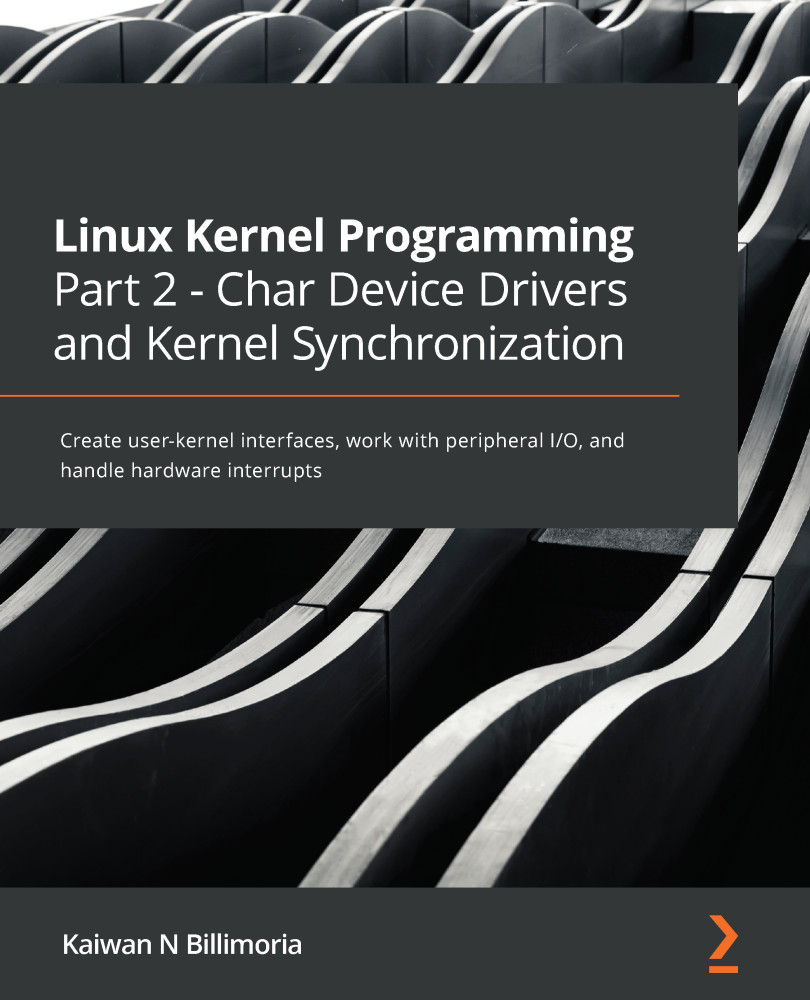add_timer() started our kernel timer. As you just saw, it will soon expire. Internally, as we mentioned earlier, the kernel's timer softirq will run our timer's callback function. In the preceding section, we initialized the callback function to the ding() function (ha, onomatopoeia – a word that suggests the sound it describes – in action!) via the timer_setup() API. Hence, this code will run when the timer expires:
static void ding(struct timer_list *timer)
{
struct st_ctx *priv = from_timer(priv, timer, tmr);
/* from_timer() is in fact a wrapper around the well known
* container_of() macro! This allows us to retrieve access to our
* 'parent' driver context structure */
pr_debug("timed out... data=%d\n", priv->data--);
PRINT_CTX();
/* until countdown done, fire it again! */
if (priv->data)
mod_timer(&priv->tmr, jiffies...


